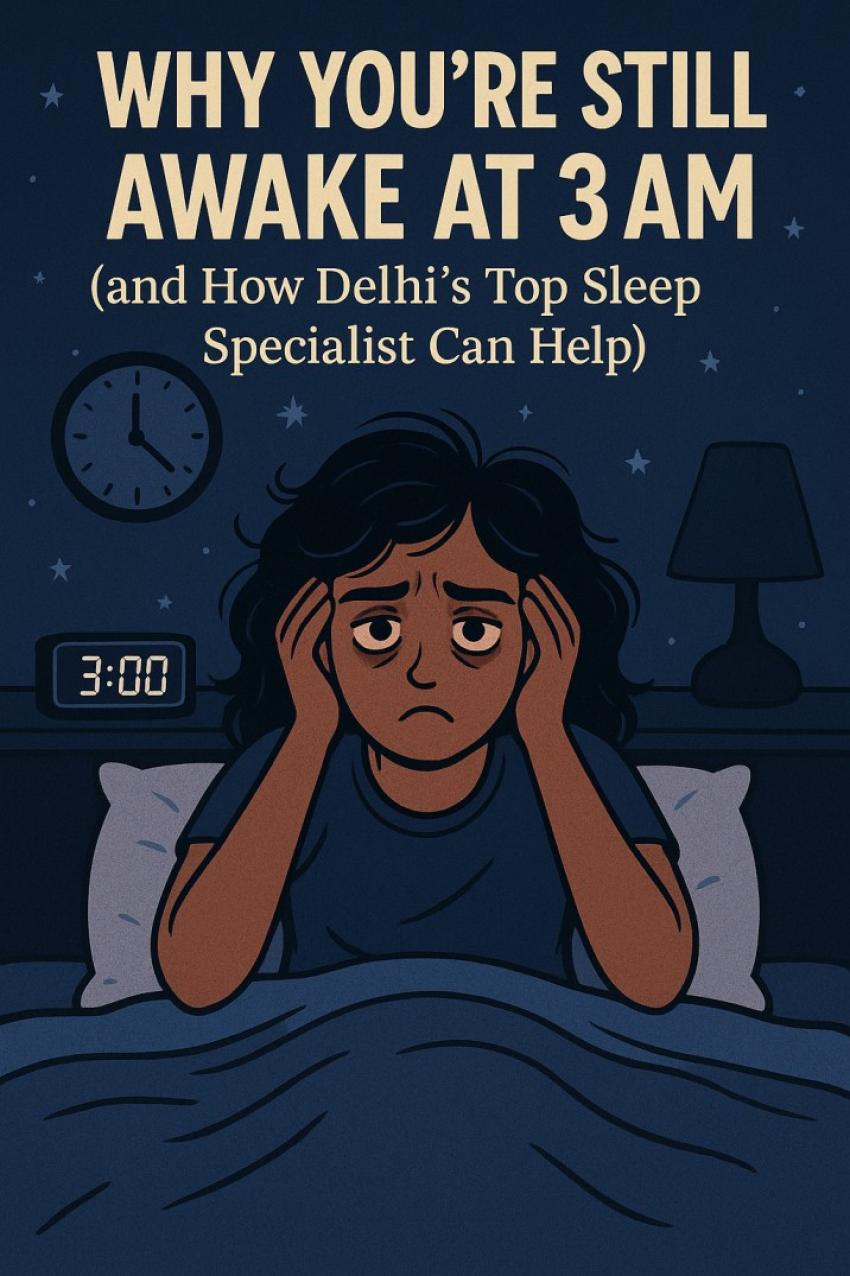
It’s 3 AM. Again. You're lying in bed, eyes wide open, body tired, but your mind just won't stop. Thoughts keep spinning. You’ve tried everything—herbal tea, meditation, no screens after 9 PM. Still, sleep doesn’t come. And when it finally does, it’s light, broken, and you wake up feeling worse than before.
You're not alone. Millions of people in India struggle with insomnia, especially in fast-paced cities like Delhi. It affects your mood, focus, energy, and health. It can even increase your risk for conditions like high blood pressure, diabetes, and depression.
But here's something many don’t realize: sleep issues like this often have deeper roots. And that’s why seeing a sleep specialist or a neurologist in Delhi—someone trained to look at both your sleep and your brain—can make all the difference.
Why Does This Keep Happening?
Lack of sleep is only one aspect of insomnia. It’s about why you can’t sleep. Maybe your brain stays in “alert” mode long after bedtime. Maybe anxiety or racing thoughts won’t let you switch off. Or maybe your body clock is out of sync, which is common in people with delayed sleep phase disorder.
Some people also have underlying sleep disorders like sleep apnea or restless legs syndrome and don’t even know it. These conditions can wake you up multiple times a night without you remembering. You just feel exhausted all the time.
What Help Actually Looks Like
This isn’t just about tips like “don’t use your phone before bed.” If your insomnia has been going on for weeks or months, you need expert help. A real solution starts with a full sleep evaluation. This might include:
A sleep history: What time you go to bed, how long it takes to fall asleep, when you wake up, etc.
A sleep study: Done at home or in a clinic, this tracks your brain waves, oxygen levels, heart rate, and movements while you sleep.
Medical check: To rule out neurological conditions or hormonal imbalances.
Delhi's top specialists, like Dr. Manvir Bhatia, work at dedicated centers like the Neurology and Sleep Centre, where they look at all these factors. They're not just focused on giving sleeping pills—they help figure out what's causing your sleep problem and treat it from the root.
What You Can Expect
Treatment is different for everyone. It might include:
Cognitive Behavioral Therapy for Insomnia (CBT-I): It helps rewire how your brain thinks about sleep.
CPAP therapy: If sleep apnea is the issue.
Lifestyle changes: Simple adjustments in routine that actually match your sleep pattern.
Medication, if necessary: But always as a short-term aid, not the only fix.
A Personal Note
I’ve had nights where sleep just disappeared. I'd lie awake for hours, watching the clock, dreading the next day. It started to affect my work, my mood, and my relationships. What helped me wasn’t just taking a tablet. It was understanding why my sleep was broken—and finally talking to someone who knew what to look for.
If you’re stuck in the same loop, don’t keep guessing. Talk to someone who gets it.
Final Thought
Sleep isn’t a luxury. It’s essential. If it’s 3 AM and you’re still awake night after night, something’s off. You don’t have to figure it out alone. A trusted sleep specialist in Delhi, especially at a neurology sleep centre, can help you understand what’s really




